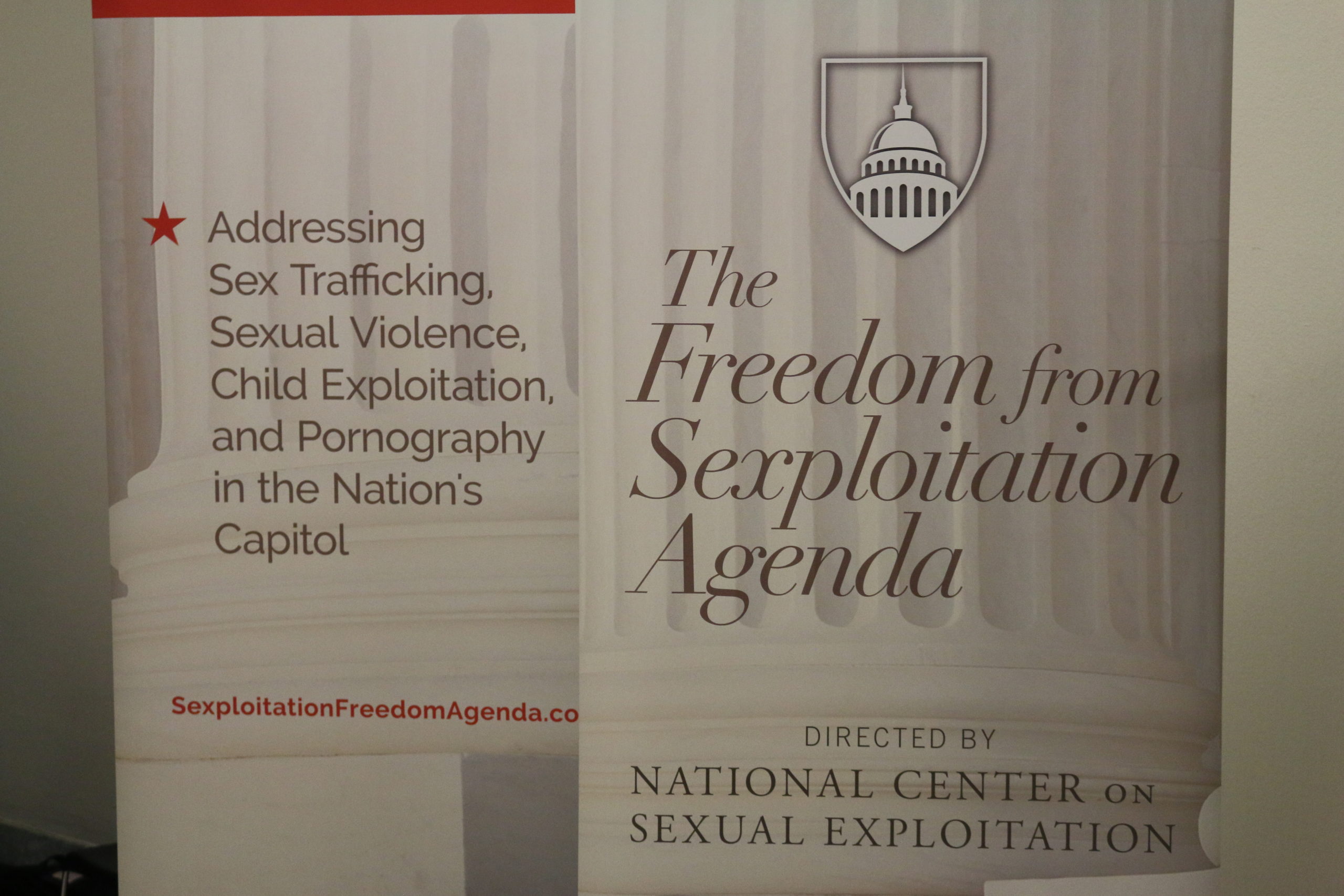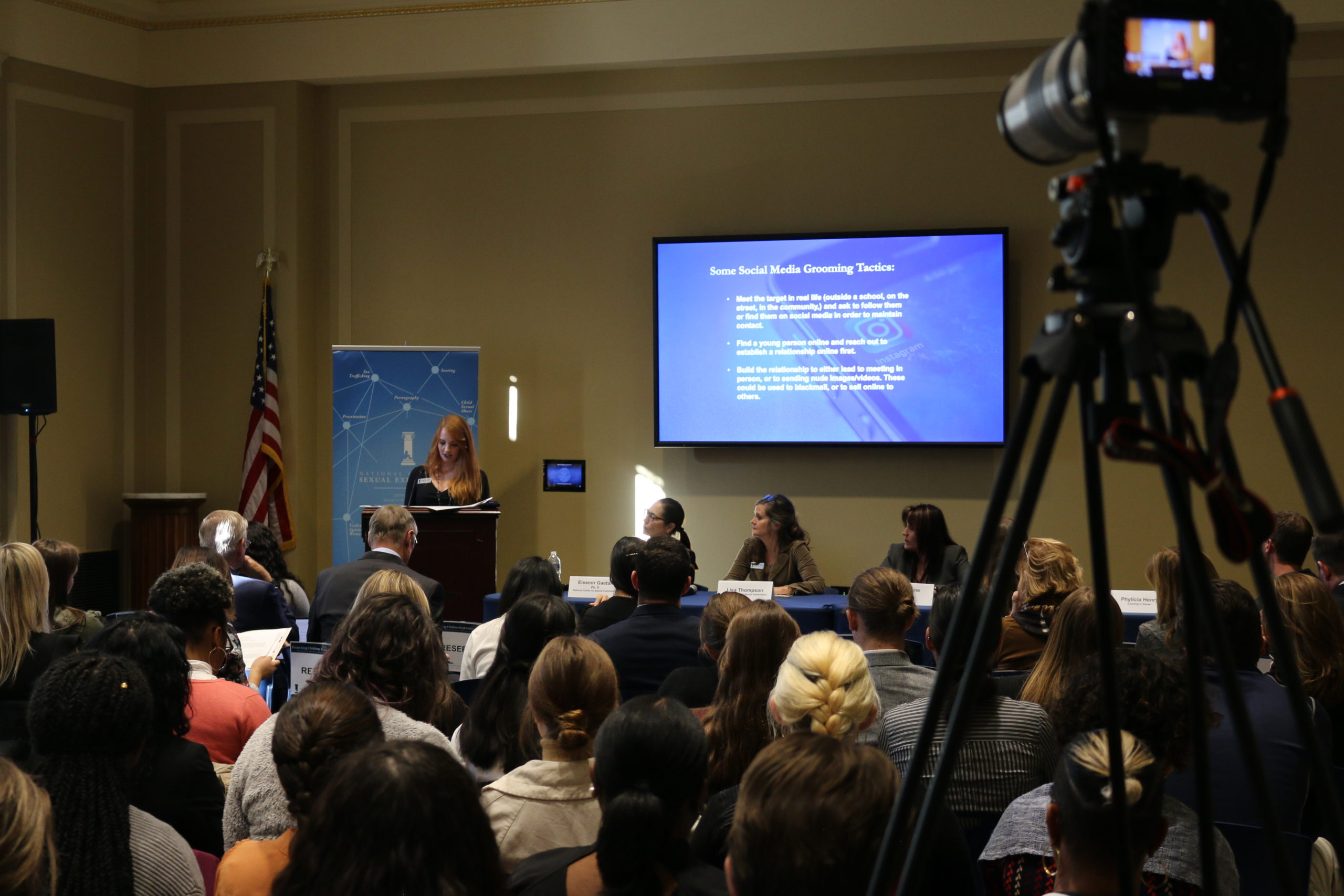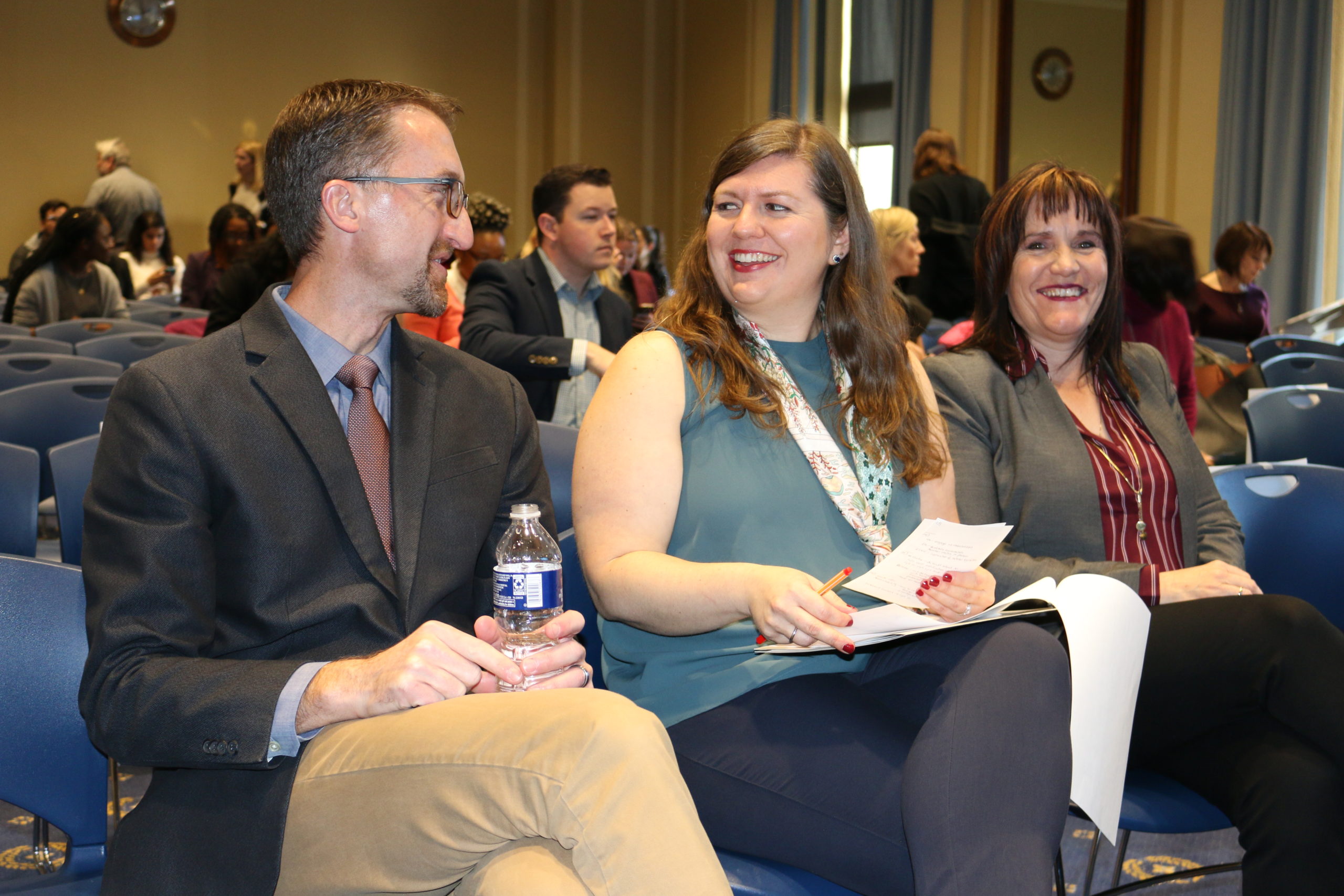Online child safety should be top of mind for all of us—not just parents. We protect children from undue harm and exploitation from harmful industries elsewhere—such as the tobacco industry—but our systems and laws have not kept pace with technological advancement and our children’s well-being is at severe risk as a result.
That reality was the driving force behind the presentations and policy recommendations laid out by the National Center on Sexual Exploitation (NCOSE) and several other industry experts at the national symposium on “Protecting Children from Online Exploitation: Advancing Policy Solutions to Solve Child Sexual Exploitation in the Digital Age” in Washington, D.C. on November 6, 2019.
Information on NCOSE’s “Protecting Children from Online Exploitation” national symposium
Recap of the National Center on Sexual Exploitation’s national symposium on “Protecting Children from Online Exploitation”
Although our experts spoke to a variety of types of harm that children are faced with online, the impetus of the symposium was clear: online child safety is being sacrificed for profit by large tech companies consumed with their own bottom lines and current legislative policies are powerless to offer children and families viable protection from those companies and their products.
Phylicia Henry from Courtney’s House, an organization that helps underage survivors of sex trafficking to recover, opened up about how the average age of the minors coming into Courtney’s House is growing younger at a stunning pace and how the girls they are working with are increasingly pointing to the significant role digital platforms like Instagram play in their grooming and abuse.
Stacie Hoffman of Oxford Information Labs broke down the complexities and potential online child safety implications of DoH (DNS-over-HTTPS) implementations being worked on by large tech corporations like Google, Mozilla, Cloudflare, and others with little to no oversight.

Chris McKenna of Protect Young Eyes broke down the case for an improved app ratings system that equips parents with vital information about the technology their kids are interacting with—information that currently isn’t required by law.
Haley Halverson, Vice President of Advocacy and Outreach at NCOSE, addressed the reality of the systems behind currently popular social media mediums like Instagram and Snapchat and how their platforms include features and vulnerabilities that leave children at risk of being easily targeted and groomed by predators.
Rob Spectre, founder of ChildSafe.ai, underscored the pitfalls and dangers that other presenters had brought forward and then discussed opportunities for using technology to actually protect children online rather than leave them exposed to online exploitation the way many technologies and tech companies currently do.

“Social media is removing previous barriers to grooming victims for child abusers, sex traffickers, pimps, and even sex buyers themselves because apps make minors’ accounts easily discoverable and accessible. This is leaving countless adolescents vulnerable and exploited, in some cases even by strangers contacting and grooming them when their so-called privacy/safety settings were turned on,” said Haley Halverson.
“In order to dismantle the current predator’s paradise online, we need age-based default safety settings on social media platforms and other apps;” continued Halverson. “These would include features like automatically disabling direct messages from strangers for accounts of minors, automatically disabling geo-tagging, filtering out pornography, and better algorithms to remove sexually graphic or sexualizing comments on minors’ photos or videos. We also need policymakers to make it clear that 13 is not the digital age of adulthood after which mega-corporations suddenly have no responsibility to protect them as minors.”
As all of our subject matter experts discussed with chilling clarity, children today are facing unprecedented risk of experiencing sexual harm, abuse, and exploitation in online environments. Unfortunately, amidst our expanding digital landscape, online child safety is de-prioritized at almost every turn and children grow increasingly vulnerable with nearly every technological advance.

These risks and harms have reached an industrial scale because of factors such as Internet-connected devices, social media apps which lack age-appropriate settings, the insidious influence of hardcore pornography, antiquated laws that are grossly inadequate in the face of modern technological advances, as well as an unregulated technology sector that has virtually no criminal or civil liability for its role in facilitating sexual abuse and exploitation.
This reality must change and is why the National Center on Sexual Exploitation has developed a comprehensive set of legislative and policy recommendations entitled The Freedom from Sexploitation Agenda. We ask that you carefully review this document and join with us in working to accomplish this ambitious but achievable set of goals.




